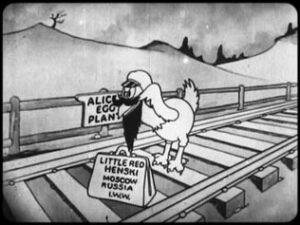
Capitol Hill’s drug warriors self-injected their latest fix of high dudgeon in early March, after the abduction of four Americans — two of whom were subsequently murdered — by drug traffickers in Mexico. On March 8, US Senators Roger Marshall (R-KS) and Rick Scott (F-FL) announced proposed legislation to designate Mexican drug cartels as “terrorist organizations.”
Marshall admitted more than he probably intended on the subject when he described the abductions/murders as “a tragedy and a symptom of a larger problem stemming from the culture supported by our national leadership.”
Why do Mexican drug cartels exist? Why do they smuggle cocaine, heroin, and other substances into the US? Why are they willing to kill to protect their turf and snuff out competition?
Because, as Willie Sutton supposedly said when asked why he robbed banks, “that’s where the money is.”
Why is that where the money is?
Because politicians like Roger Marshall and Rick Scott want it there, that’s why.
After a century of the “war on drugs,” a few lessons which were obvious from its beginning remain glaringly so.
Lesson 1: Some people like to use drugs, and are going to do so whether they have Marshall and Scott’s permission to do so or not.
Lesson 2: Most people like to make money, and some are going to do so by providing drug users with drugs, whether they have Marshall and Scott’s permission to do so or not.
Lesson 3: The kind of people who are willing to make money without the permission of Marshall and Scott are also willing to kill to keep making that money.
Lesson 4: There’s nothing Marshall and Scott can do to change Lessons 1, 2, and 3.
Those lessons explain why we don’t very often see aspirin or beer distributors gunning their rivals down on the street.
When customers can walk into a variety of stores to buy what they want (in known quantity, quality, and strength), and when trade disputes can be settled with lawyers rather than with guns, everyone’s a lot safer.
Marshall and Scott don’t want you to be safer. They want you, and those who sell you the things you want, to live in terror of their disapproval. They are, in a word, terrorists.
Oddly enough, they’re also both veteran drug dealers themselves — Marshall as a prescription-writing obstetrician, and Scott as a “healthcare executive” who parlayed a fortune made facilitating Medicare fraud into a career in politics.
The continuing terror campaigns they order and sanction — from abducting merchants and customers off the street and putting them in cages, to deploying cops and troops abroad to violently suppress dealers — guarantee that their opponents will likewise turn to terror.
Marshall, Scott, and the cartels are mutually supporting peas in a rotten pod.
Thomas L. Knapp (Twitter: @thomaslknapp) is director and senior news analyst at the William Lloyd Garrison Center for Libertarian Advocacy Journalism (thegarrisoncenter.org). He lives and works in north central Florida.
PUBLICATION/CITATION HISTORY


